The Limpach estate was inaugurated this Thursday, after 17 years of a roller coaster-like construction site. Managed by Apemh, it provides employment for around a hundred disabled employees.
“Finally!”, breathes the president of Apemh, Romain Kraemer. And for good reason. It took 17 years for the project, carried out by the association of parents of children with intellectual disabilities and entirely financed by the State, to come to fruition along the road from Soleuvre to Limpach.
“This site is the culmination of a huge amount of work that began in 2007, when the Ministries of Family and Labor asked us to create more sheltered workshops to meet the needs,” he continues.
A real obstacle course
Apemh, which already had land in Limpach at the time, completed the design of this new training and work structure in 2009, by finalizing the plans for the workshops and the professional preparatory center (CPP) capable of accommodating 200 people.
The construction site, delayed several times by a series of administrative and political obstacles, finally allowed the agricultural estate to move from Bettange to Limpach in 2016, while vegetable production in the brand new greenhouses also began.
In 2021, the Hoka animal boarding house launched its activity, followed by other professional inclusion workshops over the last two years. So much so that today, nearly a hundred disabled people work on the site, alongside around fifteen young people in training, in eleven different areas:
- agricole
- vegetable production
- household
- laundry room
- service technique
- pet boarding
- subcontracting
- catering kitchen
- canning
- Lampecher shop
- and biscuits.
Before Apemh, it was the psychiatric asylum
A real tour de force, if we think back to the dark future that was promised to children with intellectual disabilities in the 1960s, when Apemh was created.
“In 1967, there was no specialized structure, nothing. The only possible path for them, once their parents were no longer there, was the psychiatric asylum in Ettelbruck,” recalls Romain Kraemer. “It was really terrible.”
A bygone era, when the entire society is slowly changing its outlook on disability, making inclusion one of its fundamental values from now on.
Despite everything, many challenges persist, starting with employment. “We have 465 employees in our sheltered workshops, but there is a waiting list of 120 to 150 names. Most of the students currently in skills centers will attend our workshops or our professional propaedeutics centers,” anticipates the president.
“There, they will receive training based on what suits them best, what they are capable of doing, and of course, what they like, to motivate them.”
THE NUMBER: 1,456
This is the number of disabled people currently employed in a sheltered workshop in Luxembourg. There are around thirty of them in the country and they are managed by different associations. Those of Apemh employ almost a third of these employees, or 465 people spread across its sites – Bettembourg, Parc Hosingen, Limpach and Bettange.
Of the 6,109 residents recognized as disabled employees, 36% work in the ordinary job market, 30% are unemployed, 24% in sheltered workshops and 10% are inactive and not registered with Adem.
The challenge of support
For him, the main problem in integrating disabled people into private companies is support. “These people are capable of working well, but sometimes things go wrong. And then, you need someone to supervise.”
Which explains the reluctance of most employers in the ordinary job market. “They prefer to pay a fine rather than hire the mandatory quota of 5% of disabled people, and that also includes physical disabilities,” points out Romain Kraemer. And even in a sheltered workshop, not everything is easy.
Jobs that depend on the economic context
The funds for this new area of Apemh were released by the Ministry of Family, and it is the Ministry of Labor that pays the employees’ salaries – the legal minimum wage.
“For each new job created, you must submit a request to adapt the agreement. It is very cumbersome at the administrative level and it also depends on the economic context,” he emphasizes.
Hence the unwavering commitment of Apemh. These parents are aware that working goes far beyond a simple professional occupation. It means having one’s place in society, a social life, and developing one’s self-esteem. The keys to true inclusion.
Open day with entertainment on June 29, from 11:30 a.m. to 6 p.m. (88-94, rue de Soleuvre in Limpach).
Jean-Claude is passionate about his job.
Jean-Claude, disabled employee: “I feel much better here”
After a bad experience on the ordinary job market, Jean-Claude flourished at Apemh.
In the middle of the greenhouse, there are two of them busy this morning picking the ripe tomatoes: “It’s the peak season,” says Jean-Claude. “We harvest twice a week.”
Passionate about his profession, this grower shows the right actions to take care of the plants, while detailing the different varieties produced on site: cherries, Roma, beef hearts and round tomatoes.
Before joining the Apemh sheltered workshops, Jean-Claude worked for a private company. Painful memories that he still has difficulty recalling more than 20 years later.
His arrival at Apemh was a real relief: “Here, I feel much better. I worked in flowers on the Bettange site for 15 years, before joining the Limpach estate. It’s been six years now and I’m very happy,” he smiles.
Jérôme and Félix, friends more than colleagues
Outside, in the market gardening area, Félix and Jérôme are picking beans. And the one kilo boxes fill up quickly, as the vegetables are so large. “We’re going to do this whole row for 14 crates in total. Once harvested, we will wash the beans and place them in the refrigerator,” explains the young man.
He has been working in Limpach for seven years now, after an internship with farmers. Now on a permanent contract, he says he feels reassured about his future and enjoys seeing his colleagues every day: “We’re a good team,” he confides.
At 30 years old, Jérôme is already one of the veterans, having arrived in Limpach in 2015. “What I like is working in the open air. Being locked up is not for me,” he slips, carrying a full box.
However, he does not rule out dreaming of other professional projects: “I would really like to try baking. One day, maybe!”
2024-06-28





